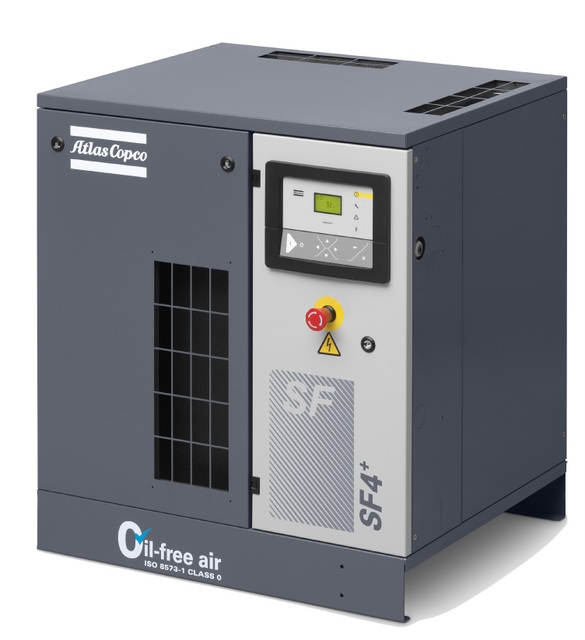 Grain, hops, yeast and water. Four elementary components that, when combined with a little time and magic, are transformed into something revolutionary. As with any endeavor, you get out what you put in. The same holds true for brewing; ingredient quality has tremendous impact on the finished product. For example, consider the water from Asheville, N.C. The fresh mountain runoff offers a unique, clean flavor vastly superior to that found in typical municipal sources. Breweries large and small are flocking to the area in hopes of accessing the coveted water to elevate and refine their beer, because pure ingredients yield a pure product.
Grain, hops, yeast and water. Four elementary components that, when combined with a little time and magic, are transformed into something revolutionary. As with any endeavor, you get out what you put in. The same holds true for brewing; ingredient quality has tremendous impact on the finished product. For example, consider the water from Asheville, N.C. The fresh mountain runoff offers a unique, clean flavor vastly superior to that found in typical municipal sources. Breweries large and small are flocking to the area in hopes of accessing the coveted water to elevate and refine their beer, because pure ingredients yield a pure product.
It’s easy to romanticize beer. With centuries of history, the drink connotes tradition and community. But while abstraction is well and good, it’s not always aligned with reality. The rustic, earthy image of beer production is a somewhat unfair depiction of the complex scientific processes taking place in modern brew houses.
Today’s brewing process is a technical art that relies on high-quality ingredients, exact recipes and infallible equipment. From precise bottling lines to premium packaging solutions, state of art machinery is essential for consistency. The sentimental view of brewing does get one thing right — beer should be pure. Many brewers add other ingredients to create flavors and variety, but outside contamination should be avoided at all costs. Exclusively using 100 percent oil-free air compressors is required for many applications throughout breweries.
Air compressors are pivotal machines in many food and beverage applications. Compressed air is used throughout process facilities for instrument air, control systems, transport and packaging. In breweries, compressed air is most often used for operating various functions in canning, bottling and kegging along with wort aeration. While oil-lubricated compressors have historically been used in breweries for control air and valve actuation, using that same air for aeration or purging can have detrimental effects on the beer.
In conjunction with compressed air, many microbreweries are now generating high-purity nitrogen onsite for vessel blanketing and for head pressure to move liquid between process tanks. Using onsite nitrogen instead of prefilled containers can eliminate safety concerns about transporting high-pressure cylinders, wait time between deliveries, cylinder impurities and can reduce operating costs. The technology also reduces the potential for oxidation and adverse microbial growth post fermentation, and provides several other cost effective advantages over other carbon dioxide and canned nitrogen supply methods. However, onsite nitrogen generation should only be used with oil-free air to protect your equipment and your product.
Oil-free air is essential in brewing. If oil comes into contact with beer, it damages the beverage by killing the all-important yeast and flatting out the frothy head, making for a less than appealing drink. It’s also a safety hazard. Because food and beverage production is so sensitive, strict quality and purity standards are in place. Purity is defined by the Safe Quality Food (SQF) Institute (SQF Code Appendix 2: Glossary) as the absence of contaminants that could cause a food safety hazard.
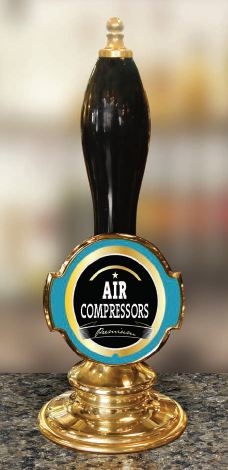 Some food grade is marketed as a safe alternative for brewery installations, but this is simply not accurate. The four basic ingredients for making a quality beer does not include oil, not even food grade. When compressed air is used in direct contact with mash, wort, beer, vessels or piping, trace amounts of oil can adversely effect the beer quality. Jeopardizing your beer or your customers’ loyalty isn’t worth the risk.
Some food grade is marketed as a safe alternative for brewery installations, but this is simply not accurate. The four basic ingredients for making a quality beer does not include oil, not even food grade. When compressed air is used in direct contact with mash, wort, beer, vessels or piping, trace amounts of oil can adversely effect the beer quality. Jeopardizing your beer or your customers’ loyalty isn’t worth the risk.
The only way to guarantee your beer is free of any harmful oils is to invest in an oil-free compressed air system. These compressors meet stringent requirements set forth by the International Organization for Standardization (ISO). Oil-free compressors are ranked as ISO Class 0, which means that the compressor introduces 0 parts per million of oil into the compressed air.
With all of the thought, consideration and passion you pour into crafting the perfect beer, you shouldn’t compromise it with compressor oil. By making oil-free air the fifth elementary component in your brewery, you can guarantee all of your processes — from aerating to bottling — are helping you craft the best possible product that’s just as enjoyable as it is safe.
Robert Tucker is a product marketing manager for industrial oil free compressors for Atlas Copco Compressors LLC.

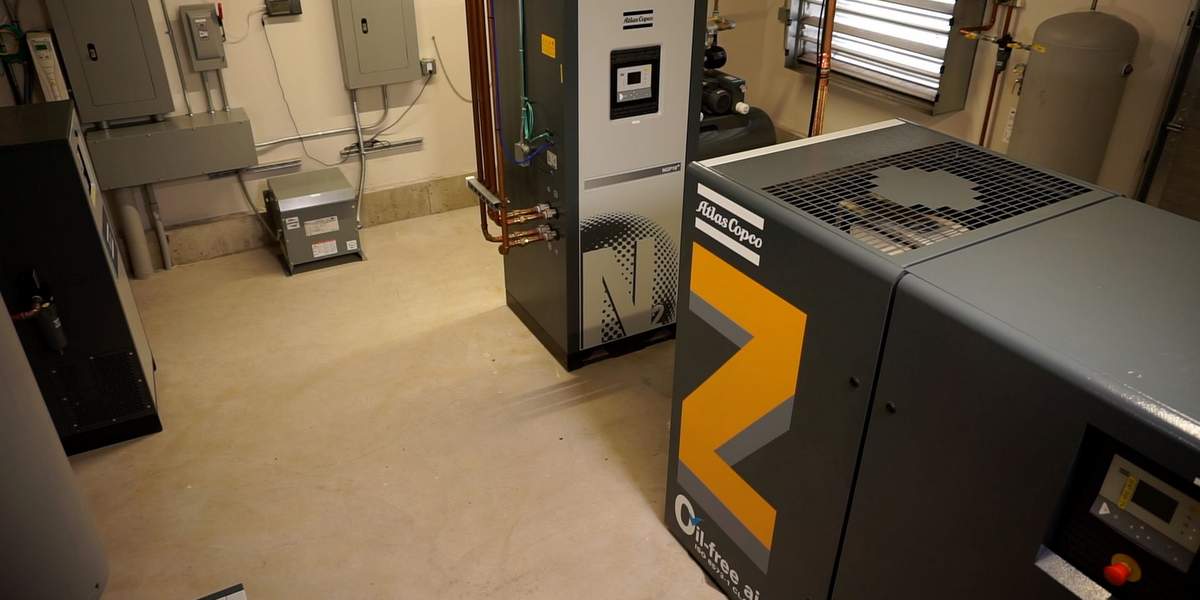
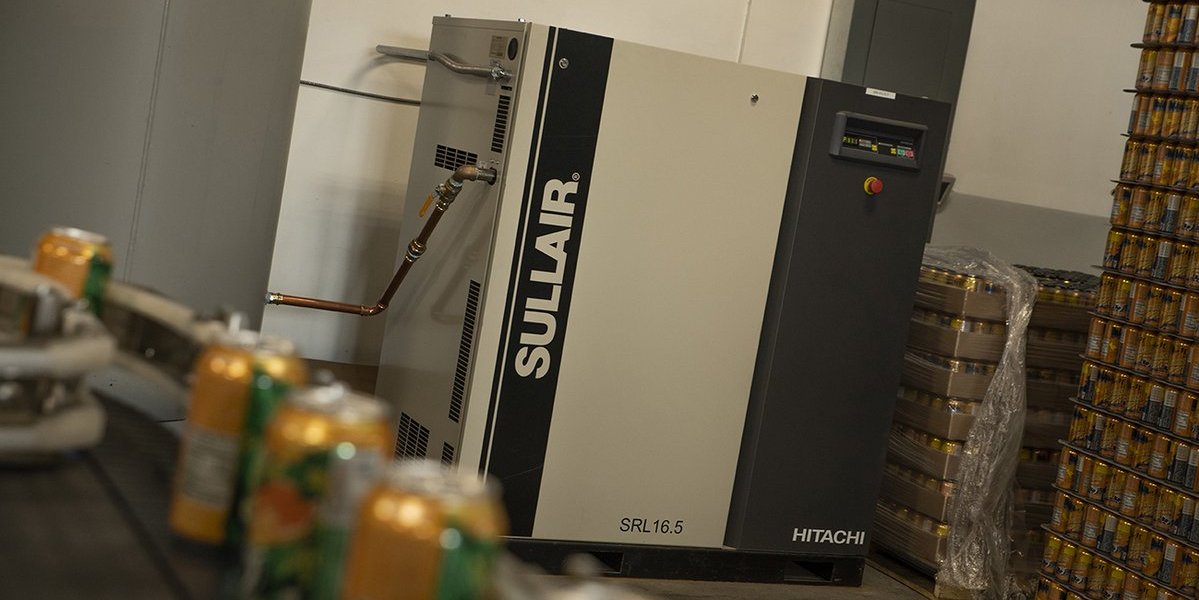
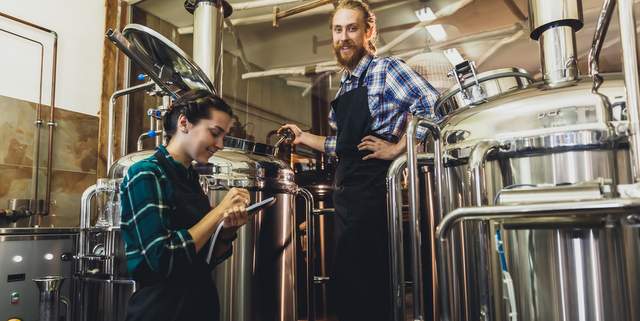
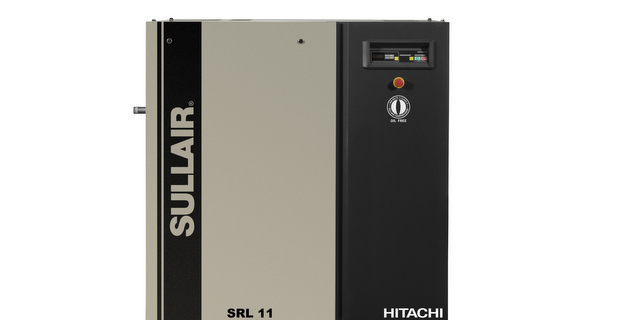

Takehiko Nakahara liked this on Facebook.
Learn how oil-free compressed air can keep your beer pure https://t.co/1K4N1xZKip
#CraftBeer #LocalBrewery #DrinkLocal #Brewery #craftbeerporn The 5th Ingredient: Learn how oil-free compressed … https://t.co/24zlpg7qkx
Learn how oil-free compressed air can keep your beer pure https://t.co/8lsgdkk63p via @craftbrewingbiz
The 5th Ingredient: Learn how oil-free compressed air can keep your beer pure https://t.co/P0JmMcWxSN #beer #craftbeer